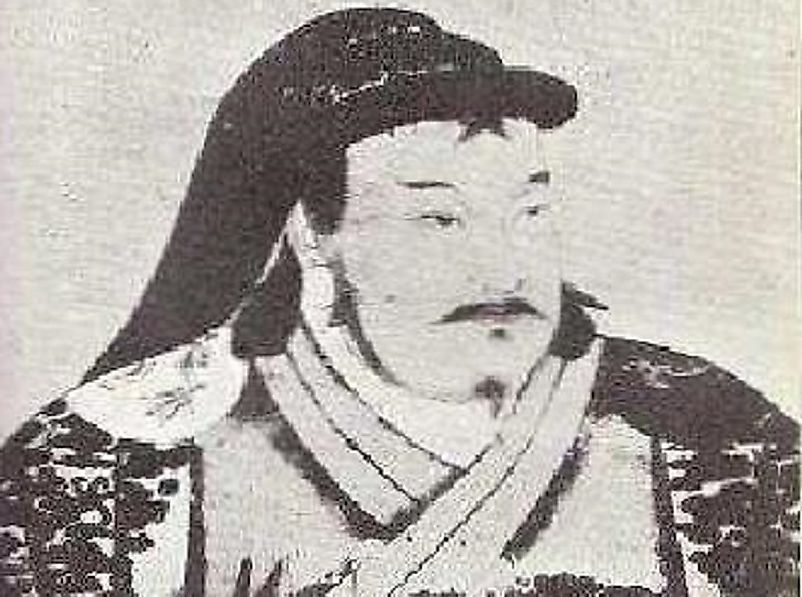When Did The Yuan Dynasty Rule?

5. Background and Initial Formation
Founded by the Mongols in the 13th Century AD, the Yuan Dynasty dominated East Asia until its capital fell to the Ming in 1368. Kublai Khan founded the Yuan Dynasty in 1271, and credited it to the honor of his grandfather, Genghis Khan. In the beginning, Genghis was the khan that brought the Turkic and Mongol tribes of Mongolia under his banner in 1206, and these made him their Great Khan (Khagan). In 1234, Ogedei Khan, son of Genghis, invaded the Jin Dynasty, and also defeated the northern territories of China. Kublai was then appointed by his uncle, Ogedei, to administer the province of Hebei in China. After a number of successions, Kublai became ruler of the Mongol territories in China. A power struggle ensued between Kublai and his brother Ariq after he returned from a war campaign.
4. Rise To Power And Accomplishments
Kublai won out over Ariq, and began his reign as absolute ruler of the Yuan Dynasty, though much civil unrest existed in his new kingdom in China. The Song Dynasty in the south of China did not recognize Mongol rule in the north, and Ogedei's grandson in western China also rebelled against Kublai's rule. However, Kublai was able to install a hostage prince as Korea's ruler. Still, this did not end his problems, as minor revolts broke out. Kublai then instituted reforms that would pacify his Chinese subjects. On the advice of Chinese court officials, Kublai revived the government structure under the previous ruling dynasties, and the Imperial Secretariat was also restored.
3. Challenges and Controversies
Kublai Khan was beset from the beginning of his rule by his own relatives, who would not obey him and fostered separatist ideas. Although Kublai had Chinese advisers in his court, he did not totally trust them. He had to act in the fashion of the old Chinese Emperors of former dynasties in order to ensure hegemony over his subjects and followers. After attaining some semblance of control throughout his kingdom, Kublai sent his navy to Japan in 1274, but this campaign proved unsuccessful. He then directed another war campaign against the Song Dynasty in the south of the country. In 1276, Kublai finally seized the Song Dynasty capital in Hangzhou.
2. Decline and Demise
Kublai Khan did not always act in fairness in his treatment of his subjects and vassal states. Furthermore, after an extended period of waging warfare campaigns and undertaking building projects, the Yuan Dynasty treasury became depleted. In 1279, government scandals and corruption started to chip away at his integrity and rule. Several of the campaigns waged against Japan, Annam (modern Vietnam, and Java failed miserably. Although several Asian nations accepted Mongol rule, the Yuan Dynasty continued to feel the inner breakaways within the Mongol empire. Much of the dynasty's power by now had been lessened, especially as Kublai lost interest and weakened after his favorite wife's death in 1281. He also lost one of his heirs in 1293. After enduring years of such tragedies, Kublai Khan withdrew from the royal court and, weakened with the illness of gout and succumbing to depression and old age, died in 1294.
1. Historical Significance and Legacy
The legacy left by Kublai Khan was only felt intermittently after his demise. Some of his successors continued his unfinished work, but these later successors largely failed miserably. Some were assassinated by rival Mongol rulers in Mongolia. As the closing of the Yuan Dynasty neared, the empire that Kublai Khan left behind took the shape of a poor manifestation of its former glory. China was now beset by turmoil, corruption, famine, and chaos. The succeeding years that ended the Yuan Dynasty were filled with rebellions and political struggles among its officials. Finally, in 1370, the last vestiges of the Yuan court fled to Mongolia. The Ming Dynasty had defeated the last forces of the Yuan in 1368, taking their capital city of what is now Beijing. The Northern Yuan dynasty formed in the Mongolian homeland, extending into parts of what are now Russia and Kazakhstan, while the Ming ruled China. Both the Northern Yuan and the Ming would rule their respective territories well into the 17th Century.











